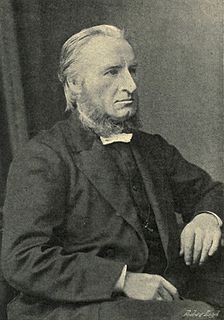A Quote by Lapo Elkann
I love Winston Churchill; I think he had the grace of coming and the grace of leaving - when things were hard he was there, and when it was time to leave, he left.
Related Quotes
Grace stands in direct opposition to any supposed worthiness on our part. To say it another way: Grace and works are mutually exclusive. As Paul said in Romans 11:6, "And if by grace, then it is no longer by works; if it were, grace would no longer be grace." Our relationship with God is based on either works or grace. There is never a works-plus-grace relationship with Him.
It is grace at the beginning, and grace at the end. So that when you and I come to lie upon our death beds, the one thing that should comfort and help and strengthen us there is the thing that helped us in the beginning. Not what we have been, not what we have done, but the Grace of God in Jesus Christ our Lord. The Christian life starts with grace, it must continue with grace, it ends with grace. Grace wondrous grace. By the grace of God I am what I am. Yet not I, but the Grace of God which was with me.
Cheap grace is the grace we bestow on ourselves. Cheap grace is the preaching of forgiveness without requiring repentance, baptism without church discipline, Communion without confession.... Cheap grace is grace without discipleship, grace without the cross, grace without Jesus Christ, living and incarnate.
Augustine said that we were all born into the world of "common grace" [i.e., available to all]. Before one is baptized, or even if one never is, such grace meets one in God's creation. There is grace in the pear tree that blooms and blushes. There is common grace in the sea (that massive cleanliness which we are proceeding to corrupt), in the fact that there was, before we laid hands on it, clean air. Our task is to appreciate that grace.
The only man who has the right to say that he is justified by grace alone is the man who has left all to follow Christ. Such a man knows that the call to discipleship is a gift of grace, and that the call is inseparable from the grace. But those who try to use this grace as a dispensation from following Christ are simply deceiving themselves.
Grace has to be the loveliest word in the English language. It embodies almost every attractive quality we hope to find in others. Grace is a gift of the humble to the humiliated. Grace acknowledges the ugliness of sin by choosing to see beyond it. Grace accepts a person as someone worthy of kindness despite whatever grime or hard-shell casing keeps him or her separated from the rest of the world. Grace is a gift of tender mercy when it makes the least sense.
You were born into a state of grace. It is impossible for you to leave it. You will die in a state of grace whether or not special words are spoken for you, or water or oil is poured upon your head. You share this blessing with the animals and all other living things. You cannot fall out of grace, nor can it be taken from you. You can ignore it. You can hold beliefs that blind you to its existence. You will still be graced but unable to perceive you own uniqueness and integrity, and blind also to other attributes with which you are automatically gifted.
If believers decay in their first love, or in some other grace, yet another grace may grow and increase, such as humility, their brokenheartedness; they sometimes seem not to grow in the branches when they may grow at the root; upon a check grace breaks out more; as we say, after a hard winter there usually follows a glorious spring.


































